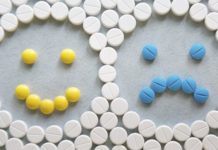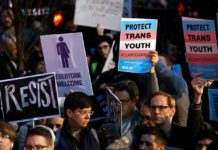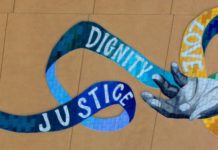Building an Intersectional Psychology of Economic Class
Innovative research methods and interventions could address socioeconomic disparities in academic achievement.
What It’s Like to Be Involuntarily Committed
Ten years after being fired for taking a mental health leave after the Virginia Tech massacre, I was diagnosed as "schizophrenic" and involuntarily committed to a hospital. Now I have a job and a life, but I'm still forced to take drugs and report to a social worker.
Bernie Sanders’ ‘Revolutionary’ Disability Plan Opposes Expanding Involuntary Treatment
Candidate Bernie Sanders' 'disability rights as civil rights' plan is distinctive in its explicit inclusion of people with psychiatric disabilities and diagnoses, an orientation that runs counter to prevailing policy discourse in the U.S.
Nuanced History of Asylums Shows Context Matters
A bottom-up approach to understanding the history of asylums allows us to learn from past successes and failures in the mental health system.
School Discipline is Racially Biased and Increases Misbehavior
School discipline that punishes minor misbehavior may increase adolescents’ misconduct and lead to racial inequalities in school discipline.
Researchers: Antidepressant Withdrawal, Not “Discontinuation Syndrome”
Researchers suggest that the pharmaceutical industry had a vested interest in using the term “discontinuation” in order to hide the severity of physical dependence and withdrawal reactions many people experience from antidepressants.
To Live and (Almost) Die in L.A.: A Survivor’s Tale
After 25 years of chronic emergency, 22 mental hospitalizations, a stint at a “community mental health center,” 13 years in a "board & care," repeated withdrawals from addictions to legal drugs, and a 12-year marriage, I plan to live every last breath out as a survivor, an advocate, and an artist.
Opening Doors in the Borderlands: An Interview with Liberation Psychologist Mary Watkins
MIA’s Micah Ingle interviews Mary Watkins about reorienting psychology toward liberation and social justice.
The Media’s New Hashtag: #GuardianshipIsGood for Britney Spears
Recent press coverage of top star Britney Spears, who remains under a personal and professional guardianship, reflects conventional attitudes about “mental illness” that are both stigmatizing and encourage legislation that promotes forced treatment.
Blaming Climate Change Inaction on Psychological Barriers Misses the Point
Researchers argue that blaming climate change inaction on psychological barriers ignores the effects of neoliberal capitalism and social structures.
Pervasive Industry Influence in Healthcare Sector Harms Patients
Experts across the globe point to the harms of drug companies’ influence on research, practice, and education in healthcare noting that it compromises patient care.
Statisticians: Current Policies Approve Ineffective Treatments
Current standards for clinical trials rely on statistical methods that allow for ineffective treatments to gain approval.
Researchers Address Dangers of Polypharmacy and Inappropriate Medication Use
A new special issue brings together articles exploring the harmful effects of simultaneous multiple medication use.
Measuring How Mental Health Professionals See Service Users’ Rights
A new scale has been developed and validated to examine beliefs held by mental health professionals towards service users’ rights.
Involuntary Hospitalization More Likely With Psychosis Diagnoses and Few Resources
New study links involuntary hospitalization with psychotic diagnosis, previous involuntary hospitalization, and economic deprivation.
Reflections on a Decade of Assertive Community Treatment
Sometimes I am crazy and sometimes I need help, but that help must not be forced upon me. I need to direct my own care; I need to be listened to. ACT is a method of social control that has more to do with saving money than assisting those in need. Money is saved by turning patients' homes into hospitals.
Dehumanization Linked to Poorer Mental and Physical Health
A new review finds that dehumanizing language, including self-dehumanization, is connected to anxiety, depression, and disordered eating.
Refugees and Immigrants Experience Increased Medical Coercion
Refugees and first-generation immigrants of African descent are at greater risk of experiencing medical coercion when compared to immigrants of other visible minority communities in Canada.
Berlin Manifesto for Humane Psychiatry Released
Changing the mental health and psychosocial support system in Germany requires public debate about the ways our society should help and support people in mental crisis and with chronic mental health problems. We believe the driving force behind all help and support should be humanitarianism and respect for inalienable human rights.
People Diagnosed with Bipolar Disorder at Increased Risk for Parkinson’s
Increased Parkinson's risk could be related to lithium, antipsychotic, and antiepileptic drug use.
NICE Guideline Update Acknowledges Severe Antidepressant Withdrawal
A new update to the NICE guideline for depression suggests providers discuss long-term, severe antidepressant withdrawal symptoms.
UN Expert Calls for Major Shift in Suicide Prevention Efforts on World Mental Health...
On World Mental Health Day, UN expert Dainius Pūras calls for a shift away from medical solutions toward a rights-based approach to make life “more liveable.” He calls for states to address societal determinants of mental health, promoting autonomy and resilience.
Discrimination Leads to Mental Distress for Gender Diverse People
Researchers seek to identify adaptive coping responses to discrimination for the transgender and gender diverse community.
Non-Gender Affirmative Treatment Detrimental to Mental Health
Gender identity conversion efforts impact psychological distress and lifetime suicidality in transgender people.
Humanizing Mental Healthcare by Reducing Coercive Practices
A review of the literature demonstrates that coercive practices lack empirical support and violate human rights.

































